Aleppo: Chilling photos show how the ancient city has changed since the Syrian conflict started
With so much of the historic city destroyed, it can be difficult to imagine what Aleppo looked like not long ago before the conflict in Syria began. That’s why a business owner in the war-torn city has been working to remind people of the rich heritage that’s being lost
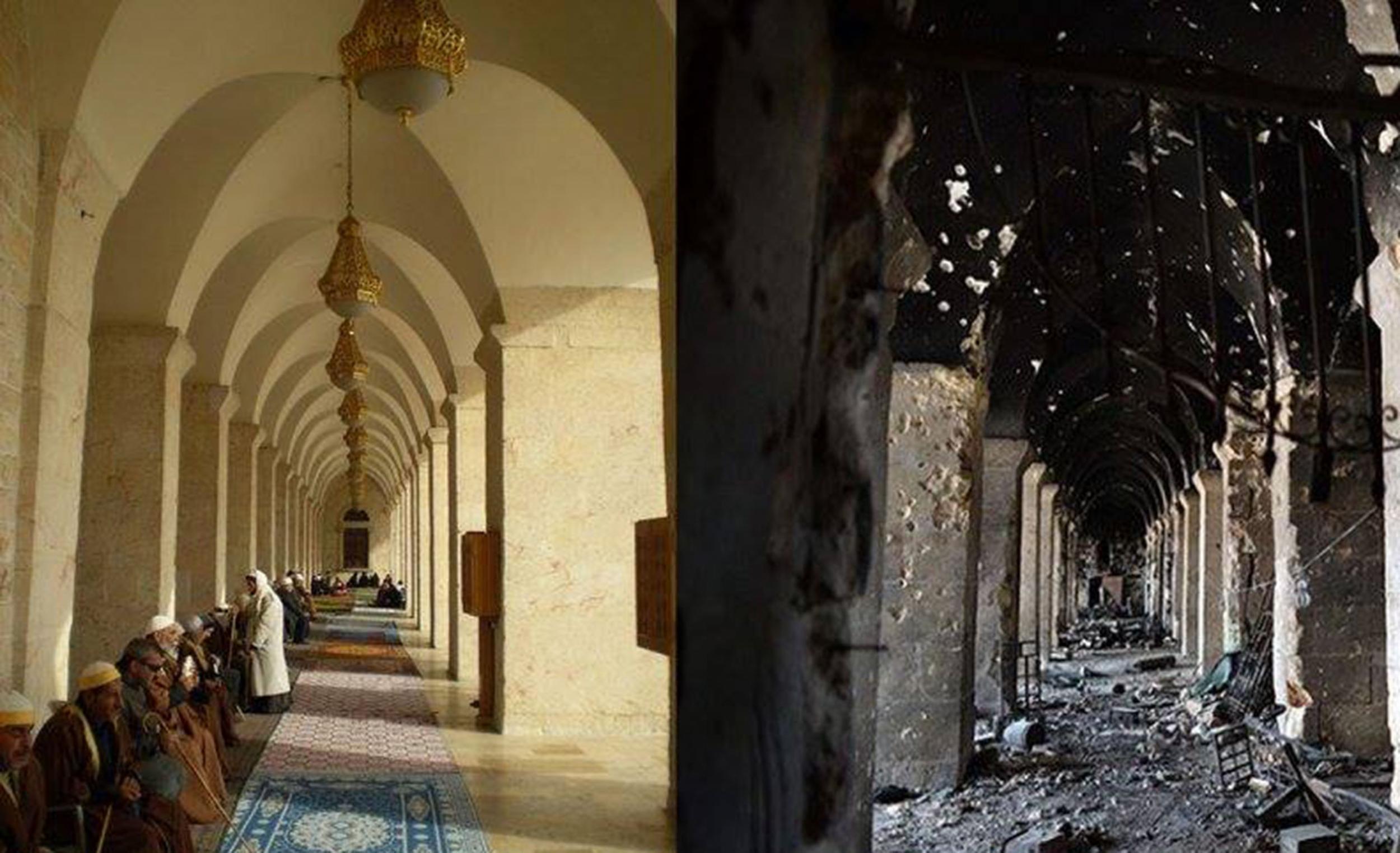
In the wake of the latest wave of deadly air strikes in a string of violence spanning over the past four years, it might be difficult to imagine that not long ago Aleppo was once a city at peace.
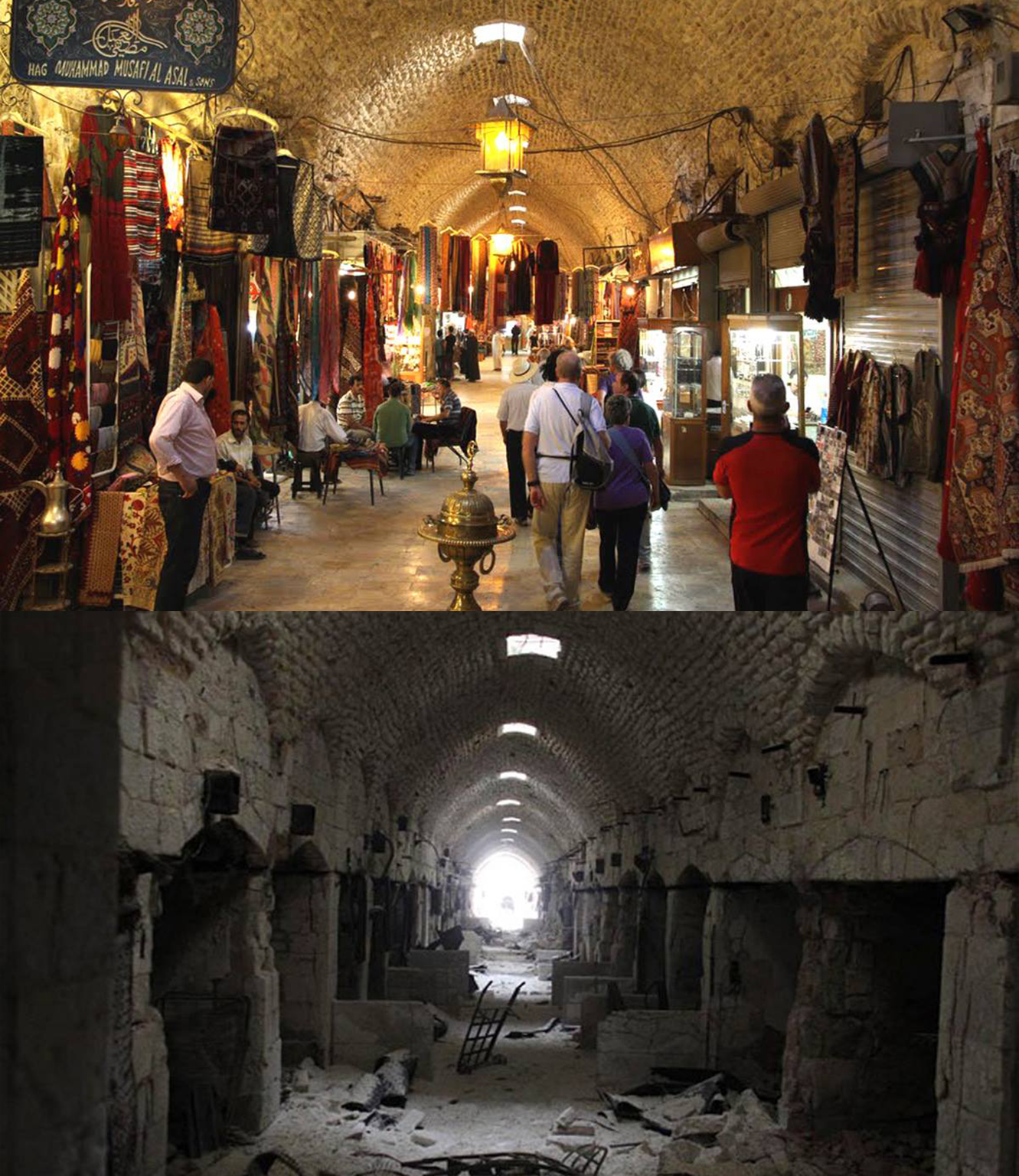
For many, it has become synonymous with the imagery that has played out across our screens: a city in ruins; infants pulled from the rubble; children lying stunned on hospital beds covered in blood and dust; the bodies of others who have been less lucky.
It’s the reality that Aleppo-born restaurant owner Carlo Ohanian lives in now, but the city hardly resembles the ancient metropolis he remembers. That’s why the Syrian, who lives in government-held west Aleppo, has made it his mission to remind the world that there was a time, not long ago, when the city stood for more than destruction.
Since the fighting between government forces and rebel fighters started to spread to the city of Aleppo in 2012, Ohanian has shared dozens of photos on social media of the city from before – and after – the conflict began.
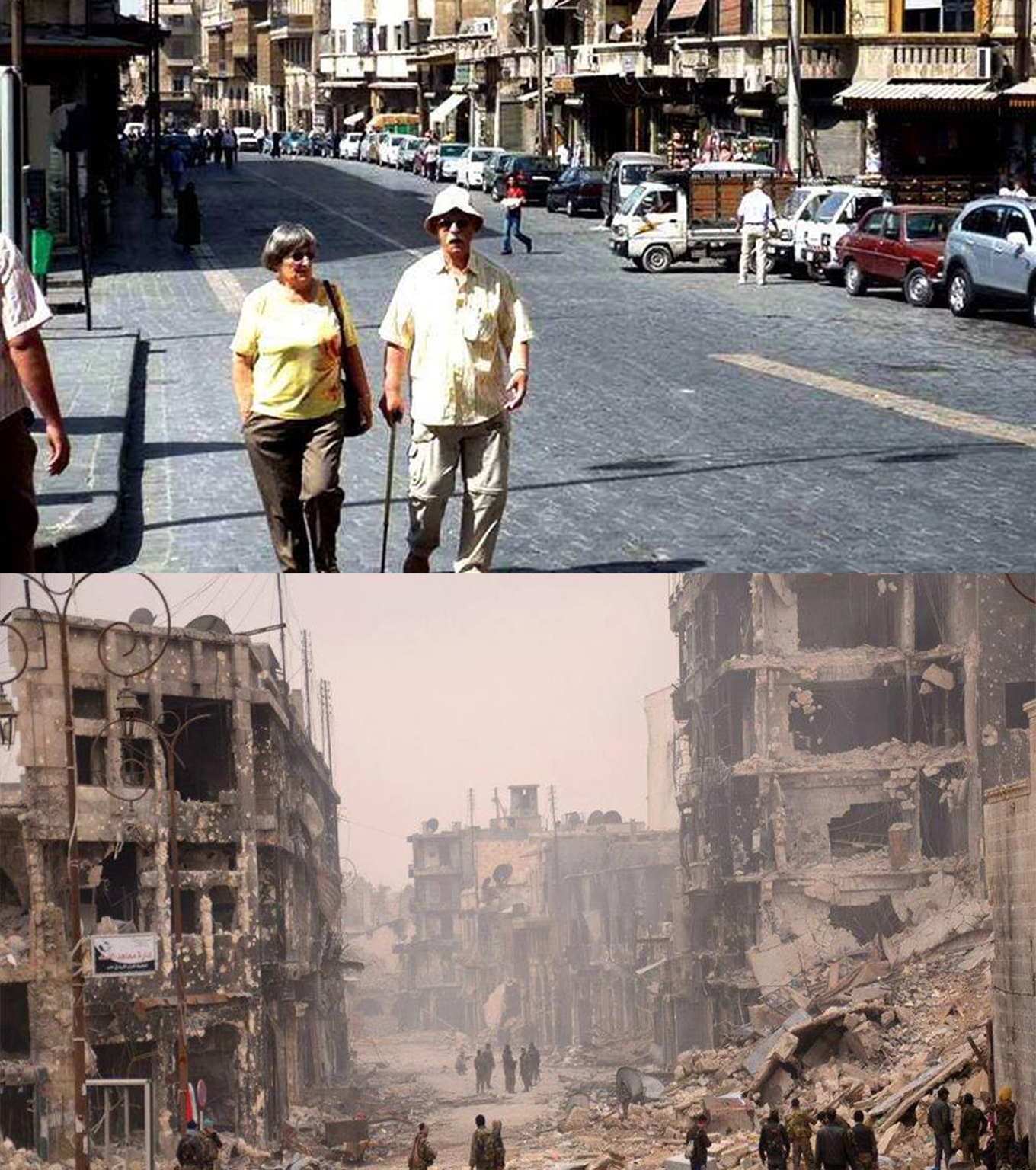
“You can imagine how it was, our city – the old souqs, the old alleys, the Citadel, the old town,” Ohanian says.
“Now all this is gone. It’s unrecognisable.”
Many of Aleppo’s historic sites, including parts of the Al-Madina Souq, a trading market that has stood the test of time since as early as the 14th century, have been ruined or burnt to ashes in the fighting between the Free Syrian Army and the Syrian Armed Forces.
The ancient city’s stunning Citadel, which dates as far back to the middle of the third millennium BC and is considered to be one of the oldest and largest castles in the world, has also suffered significant damage in the ongoing war.
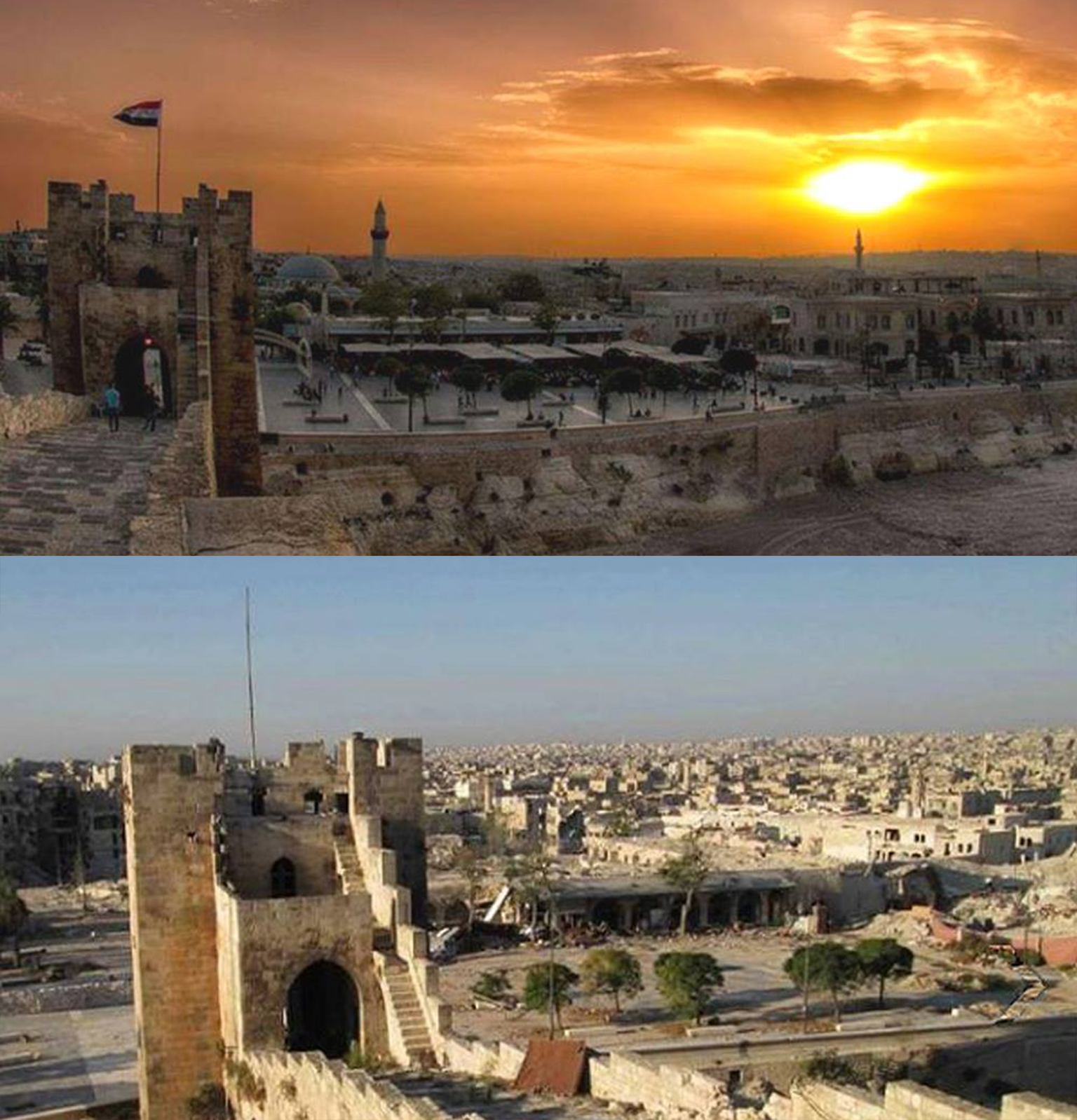
‘Everything is a nightmare’
Before the conflict started to unfurl in July 2011, Syria had been a popular tourist destination, with ancient Aleppo as its jewel. As one of the oldest continuously inhabited cities in the world, the city was inscribed on the Unesco World Heritage list in 1986.
The metropolis was once a key centre along the legendary Silk Roads and its stunning architecture has long reflected its rich history, with humanity calling Aleppo home as far back as the 10th century BC.
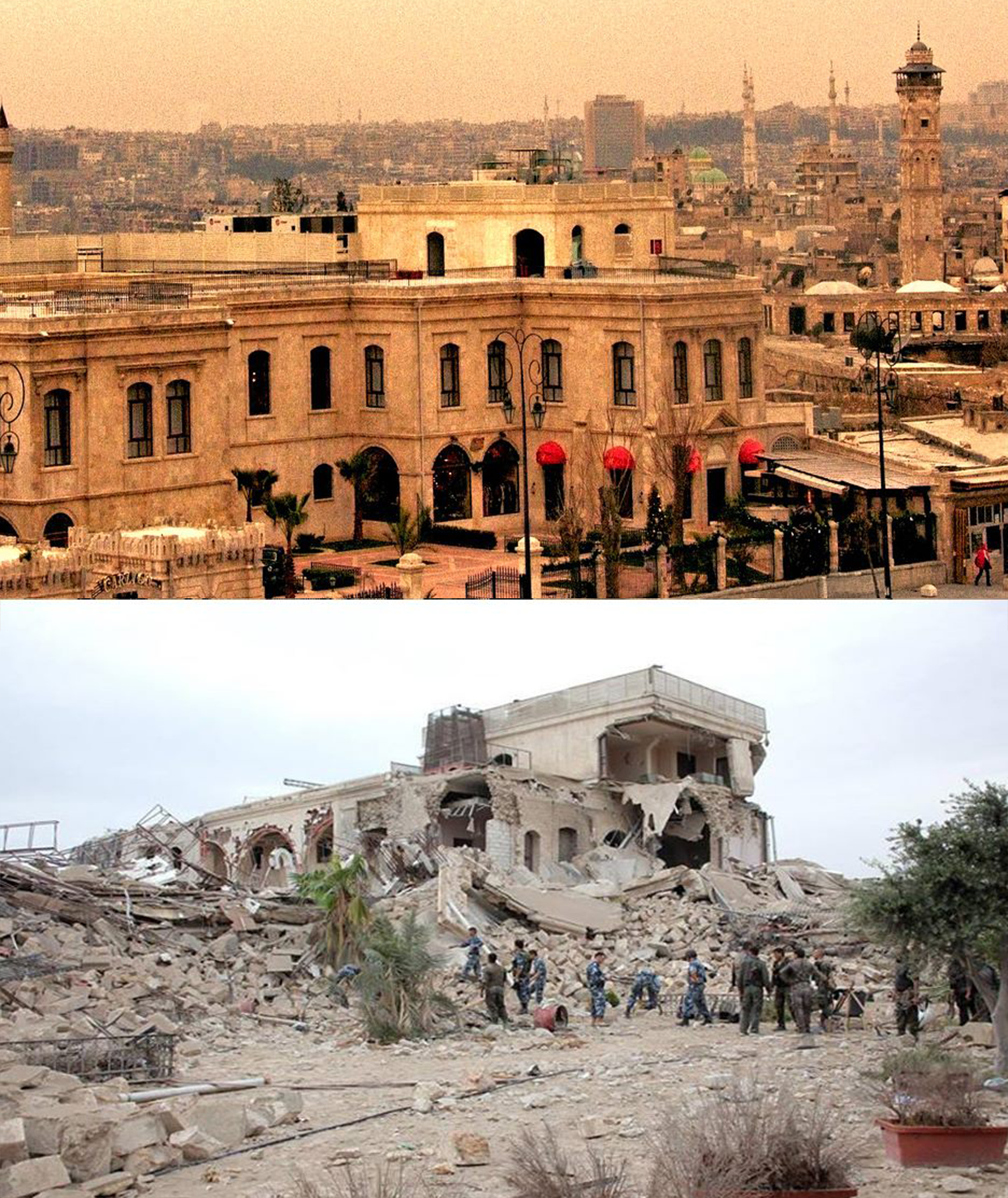
But unrelenting and indiscriminate bombings have “destroyed one of the most important and beautiful heritage sites in the world”, Ohanian says. Across Syria, more than 400,000 people have been killed and in Aleppo, and the death toll continues to rise, with sweeping parts of the city’s rich history completely obliterated.
“What’s happened to my city is absolutely a huge loss for human civilisation – an irreplaceable loss,” Ohanian says.
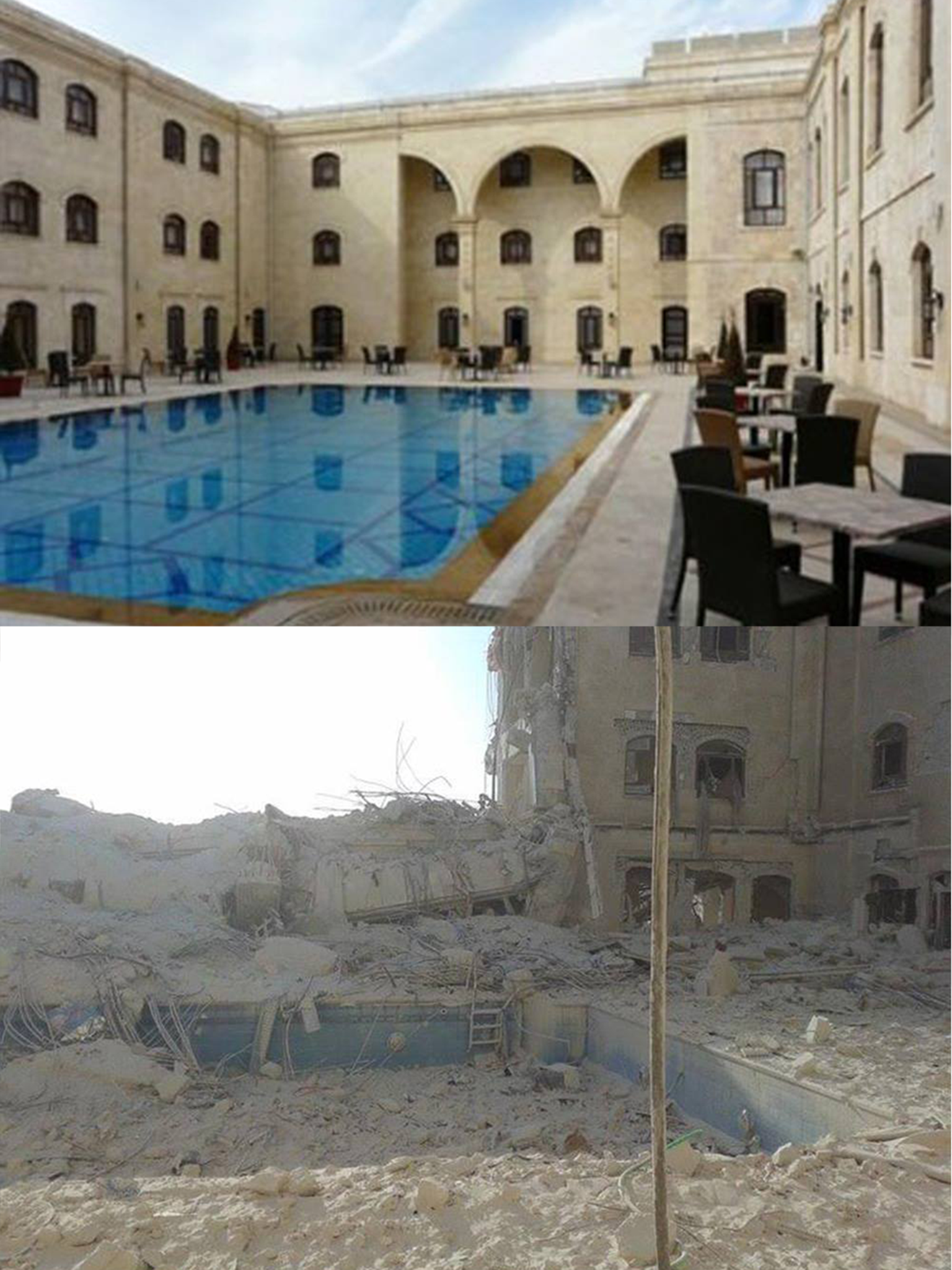
“Today, everything is a nightmare,” Ohanian says. “To be very frank, I have never imagined that the situation would get to this point of disaster in my country because there wasn’t any reason.”
In fact, Ohanian’s family opened the restaurant, Olympia, in the western part of the city, now held by the Syrian army, just nine months before the fighting began. Ohanian says it had felt like the perfect timing.
“The country was growing and the evolution of the economy led us to open a new business,” Ohanian says. He could never have guessed what lay ahead.
A high price to pay
And yet, the fighting in Syria has raged on for more than five years now. What began as a revolution has spiralled out into an increasingly complex conflict claiming hundreds of thousands of lives.
The UN has been trying to broker peace in Syria, but world powers have been split on what that peace should look like.
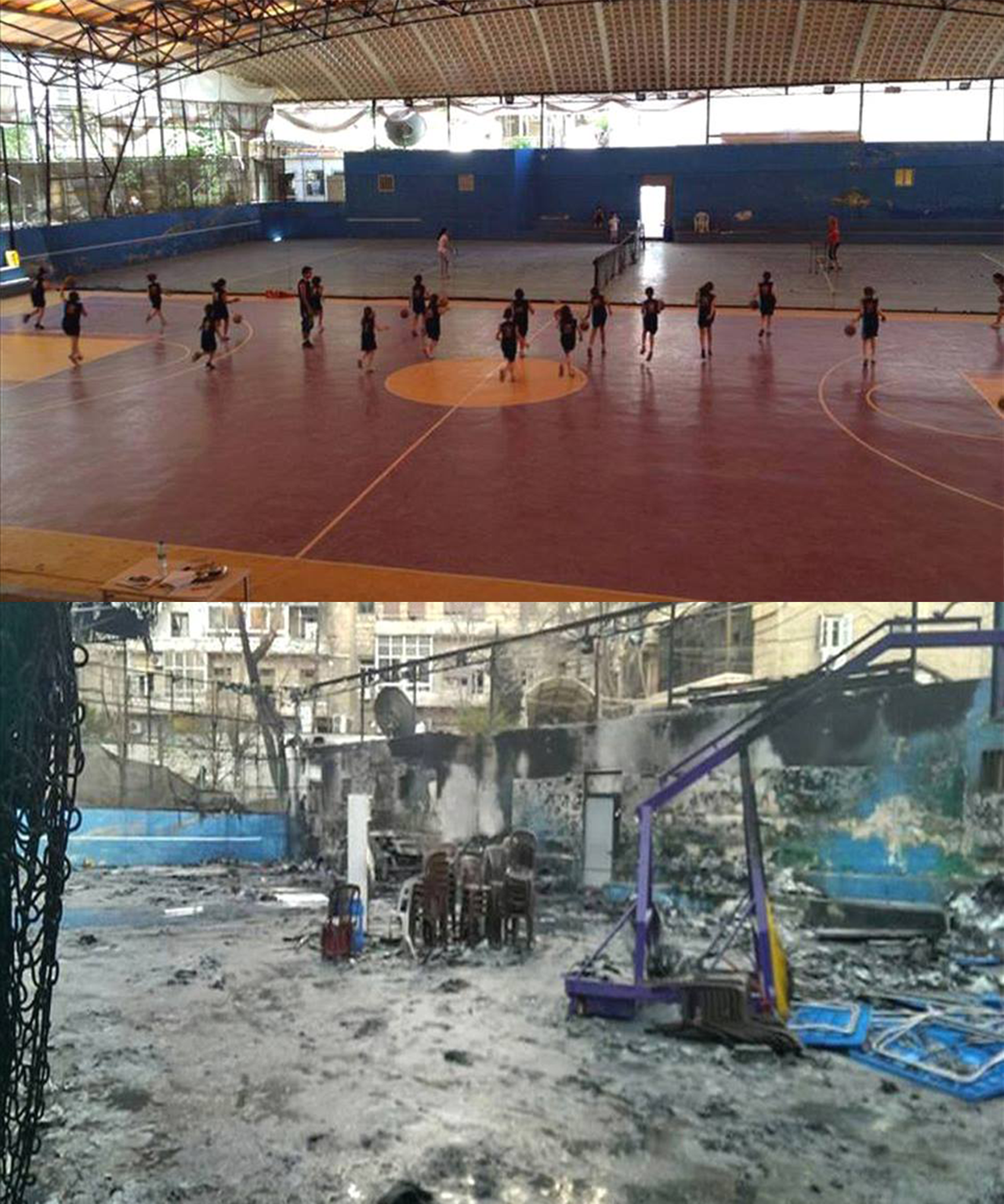
Today, east Aleppo’s 250,000 residents are still trapped by regime siege barricades, despite being told that civilians would be allowed to leave the area in government-controlled West Aleppo.
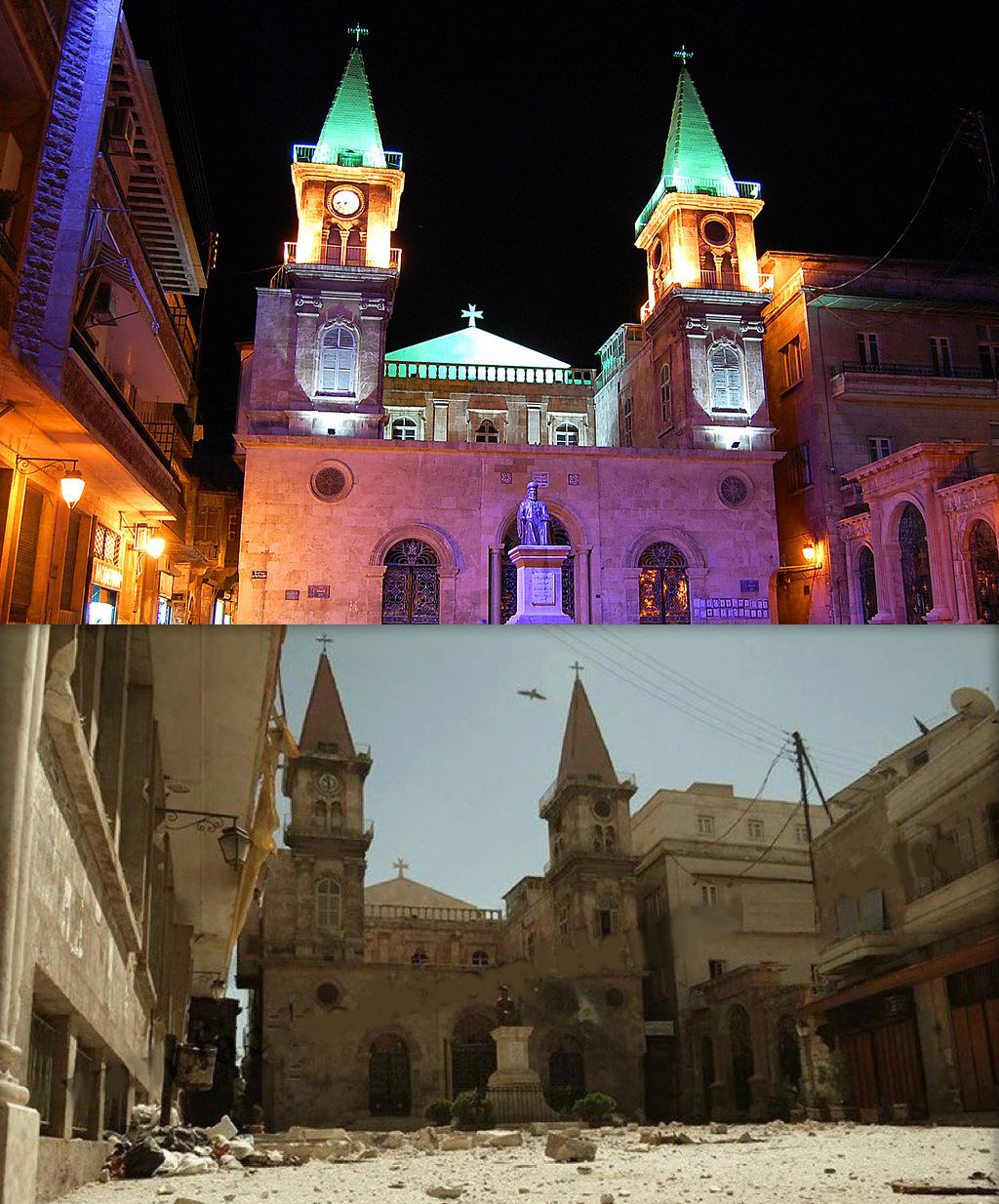
Western governments have condemned Russia for its role in supporting the strikes on the east side of the city, saying the recent blanket shellings, which have hit hospitals, rescue centres and other important sites, amount to a war crime.
“All the people in the world must know that we, the Syrians, have paid a very high price for nothing,” Ohanian says. “Just because the great powers have political agendas and economical benefits and enmities between each other.”
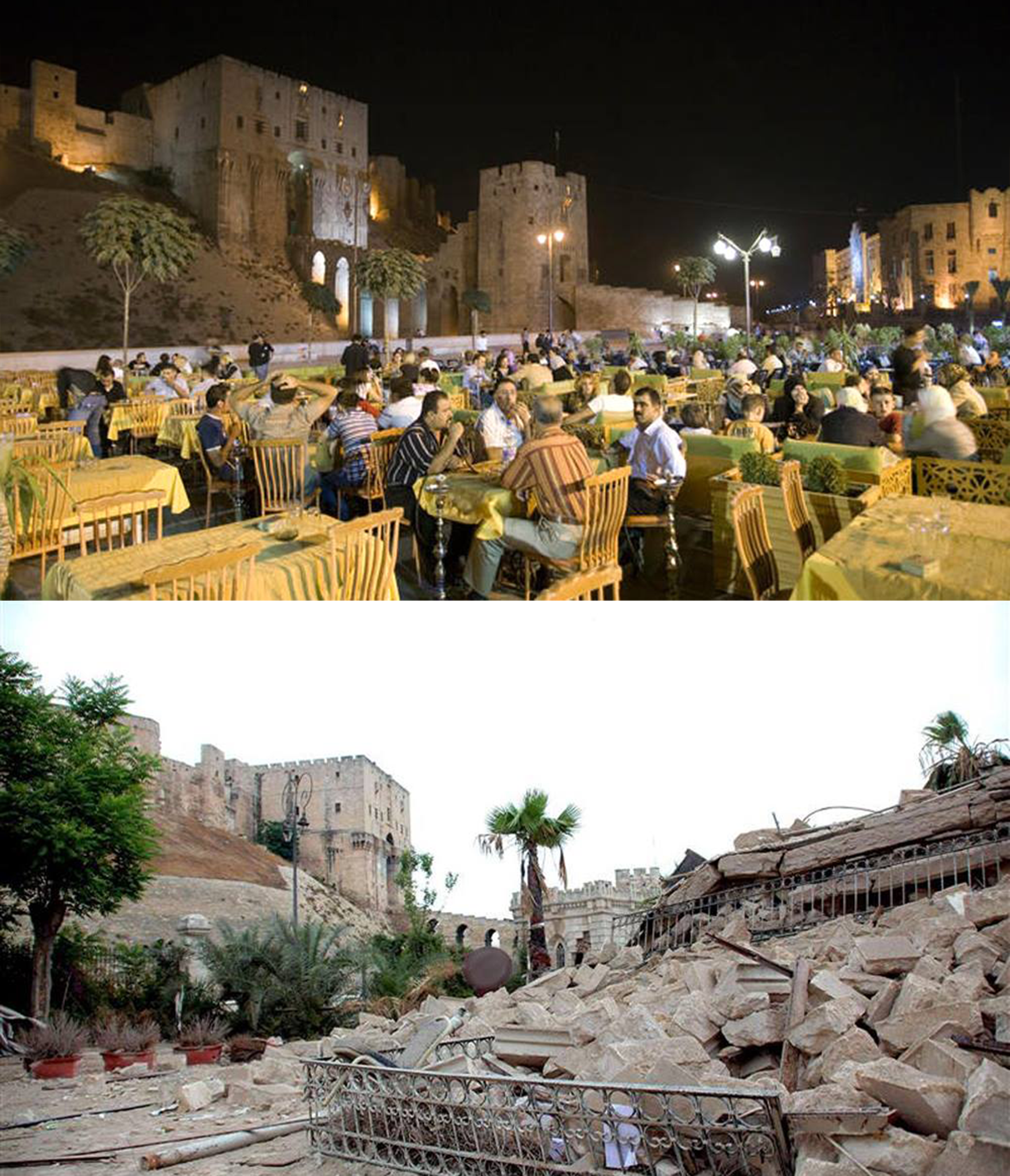
Despite the ongoing fighting, Ohanian says he is still working to keep his restaurant open. He says it has been damaged in bombings twice since the conflict began in Aleppo: once in 2012 and a second time in 2014.
Most of the restaurant owner’s family members and friends have already emigrated from the country. He says most have gone to Armenia, Canada, the US, Europe and Australia.
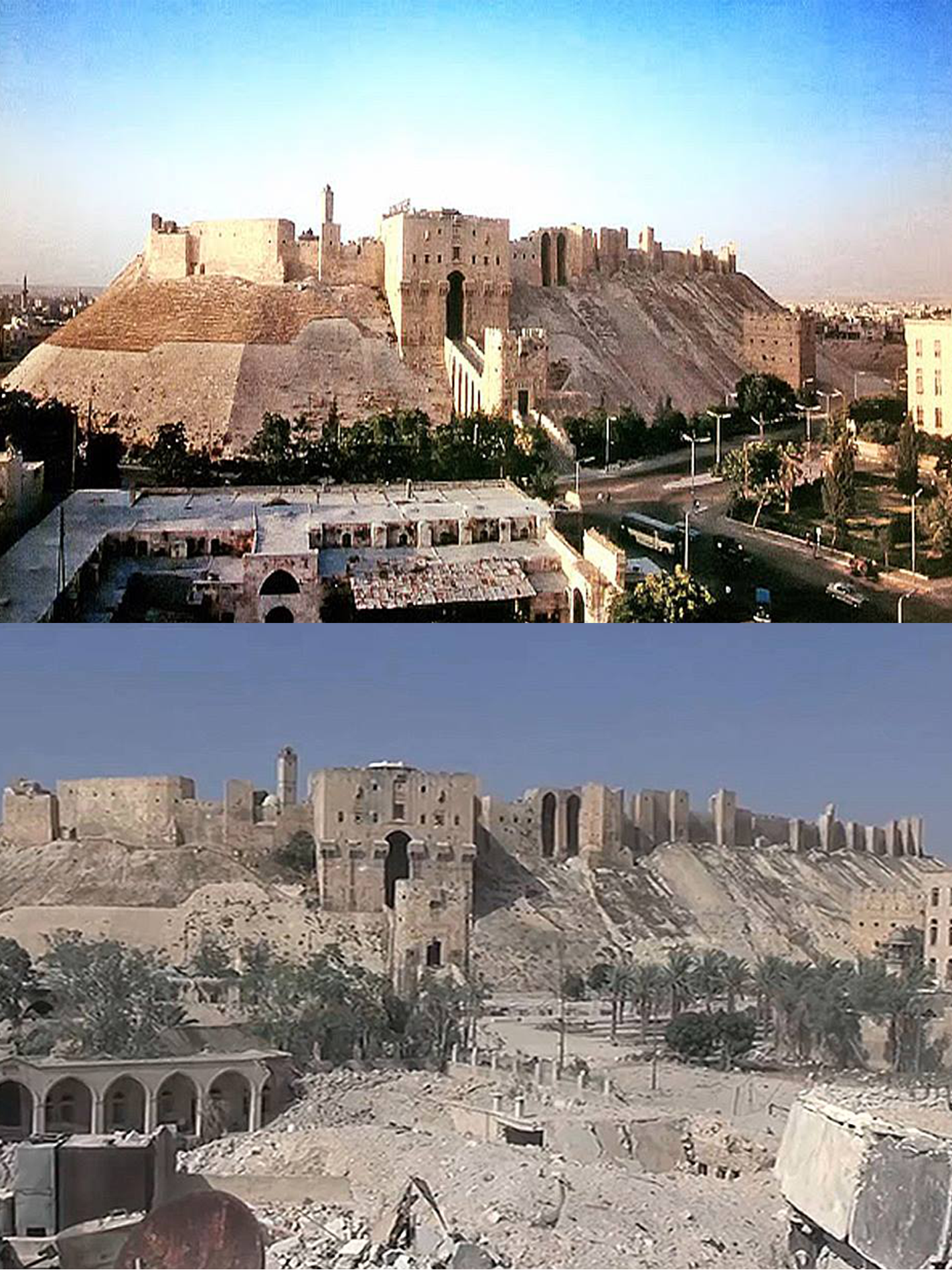
Amnesty International estimates that more than 50 per cent of Syria’s population is currently displaced, with as many as 13.5 million people still in urgent need of humanitarian assistance inside the country.
“Up to this moment, I have not made any decision to leave my city. But if things worsened more than this, I do not know what I must do or where I must go,” Ohanian says.
Join our commenting forum
Join thought-provoking conversations, follow other Independent readers and see their replies
Comments
Bookmark popover
Removed from bookmarks